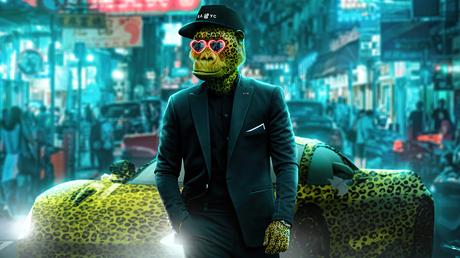
Attorneys from Wilson Elser explore the ramifications of an NFT case between Bored Apes, a significant NFT collection, and Ryder Ripps, a BAYC holder. According to them, this case and others are influencing the results of future NFT challenges in the rapidly expanding digital world.
Yuga Labs, the parent business of the Bored Ape Yacht Club non-fungible token collection, filed a federal lawsuit against artist Ryder Ripps, one of the BAYC NFT project’s most prominent critics, in June 2022.
Ripps built his RR/BAYC NFT project in May 2022 using online digital images from the BAYC NFT collection by creating new NFTs with URLs contained in Bored Ape Yacht Club smart contracts.
Yuga says that Ripps and co-founder Jeremy Cahen utilized some of the same digital art pictures as the BAYC collection and relied on Yuga’s trademarks for advertising as part of a plot to mislead consumers, annoy Yuga, and profit themselves.
Yuga’s complaint against RR/BAYC founders included claims of false designation of origin, false advertising, cybersquatting, trademark infringement, unfair competition, unjust enrichment, conversion, and tortious interference. Notably, the complaint doesn’t say anything about copyright infringement.
Ensuing Litigation
Whether Ripps’ alleged copycat project really happened or is a protected form of artistic expression, this lawsuit has a lot of potential to set a precedent and is worth following.
The court’s decision on the defendants’ motion to have Yuga’s lawsuit thrown out was a big deal. The defendants had argued that RR/BAYC was protected free speech under the Rogers v. Grimaldi test, and that the project is also protected by nominative fair use.
The US District Court for the Central District of California said that the defendants didn’t meet the Rogers threshold because the Ninth Circuit says that the “artistic expression” must be at issue and that the allegedly infringing use must be part of the work that expresses something.
The defendants argued that they satisfy Rogers’s artistic relevance requirement because their activity, when viewed as a whole, should be considered an expressive artistic work.
The court disagreed, noting that the defendants’ NFT sale was the only conduct at issue and that it did not constitute an expressive artistic work entitled to protection under the First Amendment.
Key Points
The Yuga Labs and Hermes cases are important because many people try to copy successful projects without thinking about the legal consequences.
Because of the decisions in Rothschild and now Yuga Labs, NFT copycats know that their First Amendment defenses may not work at the motion to dismiss stage and that it won’t be easy to get out of a lawsuit early on.
The ownership of Yuga Labs could stop copycats from stealing intellectual property to use in other NFTs to make profit.
The Yuga Labs court also said that the defendants did not have the right to use the nominative fair use defense, which is used when a defendant uses a trademark to describe the plaintiff’s product instead of its own. In Yuga Labs, the defendants sold their own competing NFT collection using Yuga’s trademarks.
As long as there isn’t any regulation of NFTs, judicial precedent and regulatory decisions will continue to shape the legal landscape of the NFT market as a whole.
Yuga Labs is likely to stay one of the most important cases to follow. Even though this and similar lawsuits won’t stop bad actors, the risk of costly litigation may be enough to keep them away, which could help NFT projects gain more credibility in the eyes of consumers.
